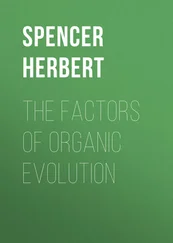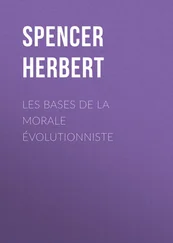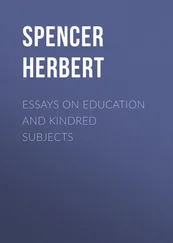Herbert Spencer - First Principles
Здесь есть возможность читать онлайн «Herbert Spencer - First Principles» — ознакомительный отрывок электронной книги совершенно бесплатно, а после прочтения отрывка купить полную версию. В некоторых случаях можно слушать аудио, скачать через торрент в формате fb2 и присутствует краткое содержание. Жанр: Философия, foreign_antique, foreign_prose, на английском языке. Описание произведения, (предисловие) а так же отзывы посетителей доступны на портале библиотеки ЛибКат.
- Название:First Principles
- Автор:
- Жанр:
- Год:неизвестен
- ISBN:нет данных
- Рейтинг книги:5 / 5. Голосов: 1
-
Избранное:Добавить в избранное
- Отзывы:
-
Ваша оценка:
- 100
- 1
- 2
- 3
- 4
- 5
First Principles: краткое содержание, описание и аннотация
Предлагаем к чтению аннотацию, описание, краткое содержание или предисловие (зависит от того, что написал сам автор книги «First Principles»). Если вы не нашли необходимую информацию о книге — напишите в комментариях, мы постараемся отыскать её.
First Principles — читать онлайн ознакомительный отрывок
Ниже представлен текст книги, разбитый по страницам. Система сохранения места последней прочитанной страницы, позволяет с удобством читать онлайн бесплатно книгу «First Principles», без необходимости каждый раз заново искать на чём Вы остановились. Поставьте закладку, и сможете в любой момент перейти на страницу, на которой закончили чтение.
Интервал:
Закладка:
By its very nature, therefore, this ultimate mental element is at once necessarily indefinite and necessarily indestructible. Our consciousness of the unconditioned being literally the unconditioned consciousness, or raw material of thought to which in thinking we give definite forms, it follows that an ever-present sense of real existence is the very basis of our intelligence. As we can in successive mental acts get rid of all particular conditions and replace them by others, but cannot get rid of that undifferentiated substance of consciousness which is conditioned anew in every thought; there ever remains with us a sense of that which exists persistently and independently of conditions. At the same time that by the laws of thought we are rigorously prevented from forming a conception of absolute existence; we are by the laws of thought equally prevented from ridding ourselves of the consciousness of absolute existence: this consciousness being, as we here see, the obverse of our self-consciousness. And since the only possible measure of relative validity among our beliefs, is the degree of their persistence in opposition to the efforts made to change them, it follows that this which persists at all times, under all circumstances, and cannot cease until consciousness ceases, has the highest validity of any.
To sum up this somewhat too elaborate argument: – We have seen how in the very assertion that all our knowledge, properly so called, is Relative, there is involved the assertion that there exists a Non-relative. We have seen how, in each step of the argument by which this doctrine is established, the same assumption is made. We have seen how, from the very necessity of thinking in relations, it follows that the Relative is itself inconceivable, except as related to a real Non-relative. We have seen that unless a real Non-relative or Absolute be postulated, the Relative itself becomes absolute; and so brings the argument to a contradiction. And on contemplating the process of thought, we have equally seen how impossible it is to get rid of the consciousness of an actuality lying behind appearances; and how, from this impossibility, results our indestructible belief in that actuality.
CHAPTER V.
THE RECONCILIATION
§ 27. Thus do all lines of argument converge to the same conclusion. The inference reached à priori . in the last chapter, confirms the inferences which, in the two preceding chapters, were reached à posteriori . Those imbecilities of the understanding that disclose themselves when we try to answer the highest questions of objective science, subjective science proves to be necessitated by the laws of that understanding. We not only learn by the frustration of all our efforts, that the reality underlying appearances is totally and for ever inconceivable by us; but we also learn why, from the very nature of our intelligence, it must be so. Finally we discover that this conclusion, which, in its unqualified form, seems opposed to the instinctive convictions of mankind, falls into harmony with them when the missing qualification is supplied. Though the Absolute cannot in any manner or degree be known, in the strict sense of knowing, yet we find that its positive existence is a necessary datum of consciousness; that so long as consciousness continues, we cannot for an instant rid it of this datum; and that thus the belief which this datum constitutes, has a higher warrant than any other whatever.
Here then is that basis of agreement we set out to seek. This conclusion which objective science illustrates, and subjective science shows to be unavoidable, – this conclusion which, while it in the main expresses the doctrine of the English school of philosophy, recognizes also a soul of truth in the doctrine of the antagonist German school – this conclusion which brings the results of speculation into harmony with those of common sense; is also the conclusion which reconciles Religion with Science. Common Sense asserts the existence of a reality; Objective Science proves that this reality cannot be what we think it; Subjective Science shows why we cannot think of it as it is, and yet are compelled to think of it as existing; and in this assertion of a Reality utterly inscrutable in nature, Religion finds an assertion essentially coinciding with her own. We are obliged to regard every phenomenon as a manifestation of some Power by which we are acted upon; phenomena being, so far as we can ascertain, unlimited in their diffusion, we are obliged to regard this Power as omnipresent; and criticism teaches us that this Power is wholly incomprehensible. In this consciousness of an Incomprehensible Omnipresent Power, we have just that consciousness on which Religion dwells. And so we arrive at the point where Religion and Science coalesce.
To understand fully how real is the reconciliation thus reached, it will be needful to look at the respective attitudes that Religion and Science have all along maintained towards this conclusion. We must observe how, all along, the imperfections of each have been undergoing correction by the other; and how the final out-come of their mutual criticisms, can be nothing else than an entire agreement on this deepest and widest of all truths.
§ 28. In Religion let us recognize the high merit that from the beginning it has dimly discerned the ultimate verity, and has never ceased to insist upon it. In its earliest and crudest forms it manifested, however vaguely and inconsistently, an intuition forming the germ of this highest belief in which all philosophies finally unite. The consciousness of a mystery is traceable in the rudest fetishism. Each higher religious creed, rejecting those definite and simple interpretations of Nature previously given, has become more religious by doing this. As the quite concrete and conceivable agencies alleged as the causes of things, have been replaced by agencies less concrete and conceivable, the element of mystery has of necessity become more predominant. Through all its successive phases the disappearance of those positive dogmas by which the mystery was made unmysterious, has formed the essential change delineated in religious history. And so Religion has ever been approximating towards that complete recognition of this mystery which is its goal.
For its essentially valid belief, Religion has constantly done battle. Gross as were the disguises under which it first espoused this belief, and cherishing this belief, though it still does, under disfiguring vestments, it has never ceased to maintain and defend it. It has everywhere established and propagated one or other modification of the doctrine that all things are manifestations of a Power that transcends our knowledge. Though from age to age, Science has continually defeated it wherever they have come in collision, and has obliged it to relinquish one or more of its positions; it has still held the remaining ones with undiminished tenacity. No exposure of the logical inconsistency of its conclusions – no proof that each of its particular dogmas was absurd, has been able to weaken its allegiance to that ultimate verity for which it stands. After criticism has abolished all its arguments and reduced it to silence, there has still remained with it the indestructible consciousness of a truth which, however faulty the mode in which it had been expressed, was yet a truth beyond cavil. To this conviction its adherence has been substantially sincere. And for the guardianship and diffusion of it, Humanity has ever been, and must ever be, its debtor.
But while from the beginning, Religion has had the all-essential office of preventing men from being wholly absorbed in the relative or immediate, and of awakening them to a consciousness of something beyond it, this office has been but very imperfectly discharged. Religion has ever been more or less irreligious; and it continues to be partially irreligious even now. In the first place, as implied above, it has all along professed to have some knowledge of that which transcends knowledge; and has so contradicted its own teachings. While with one breath it has asserted that the Cause of all things passes understanding, it has, with the next breath, asserted that the Cause of all things possesses such or such attributes – can be in so far understood. In the second place, while in great part sincere in its fealty to the great truth it had had to uphold, it has often been insincere, and consequently irreligious, in maintaining the untenable doctrines by which it has obscured this great truth. Each assertion respecting the nature, acts, or motives of that Power which the Universe manifests to us, has been repeatedly called in question, and proved to be inconsistent with itself, or with accompanying assertions. Yet each of them has been age after age insisted on, in spite of a secret consciousness that it would not bear examination. Just as though unaware that its central position was impregnable, Religion has obstinately held every outpost long after it was obviously indefensible. And this naturally introduces us to the third and most serious form of irreligion which Religion has displayed; namely, an imperfect belief in that which it especially professes to believe. How truly its central position is impregnable, Religion has never adequately realized. In the devoutest faith as we habitually see it, there lies hidden an innermost core of scepticism; and it is this scepticism which causes that dread of inquiry displayed by Religion when face to face with Science. Obliged to abandon one by one the superstitions it once tenaciously held, and daily finding its cherished beliefs more and more shaken, Religion shows a secret fear that all things may some day be explained; and thus itself betrays a lurking doubt whether that Incomprehensible Cause of which it is conscious, is really incomprehensible.
Читать дальшеИнтервал:
Закладка:
Похожие книги на «First Principles»
Представляем Вашему вниманию похожие книги на «First Principles» списком для выбора. Мы отобрали схожую по названию и смыслу литературу в надежде предоставить читателям больше вариантов отыскать новые, интересные, ещё непрочитанные произведения.
Обсуждение, отзывы о книге «First Principles» и просто собственные мнения читателей. Оставьте ваши комментарии, напишите, что Вы думаете о произведении, его смысле или главных героях. Укажите что конкретно понравилось, а что нет, и почему Вы так считаете.












